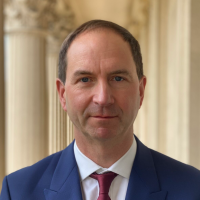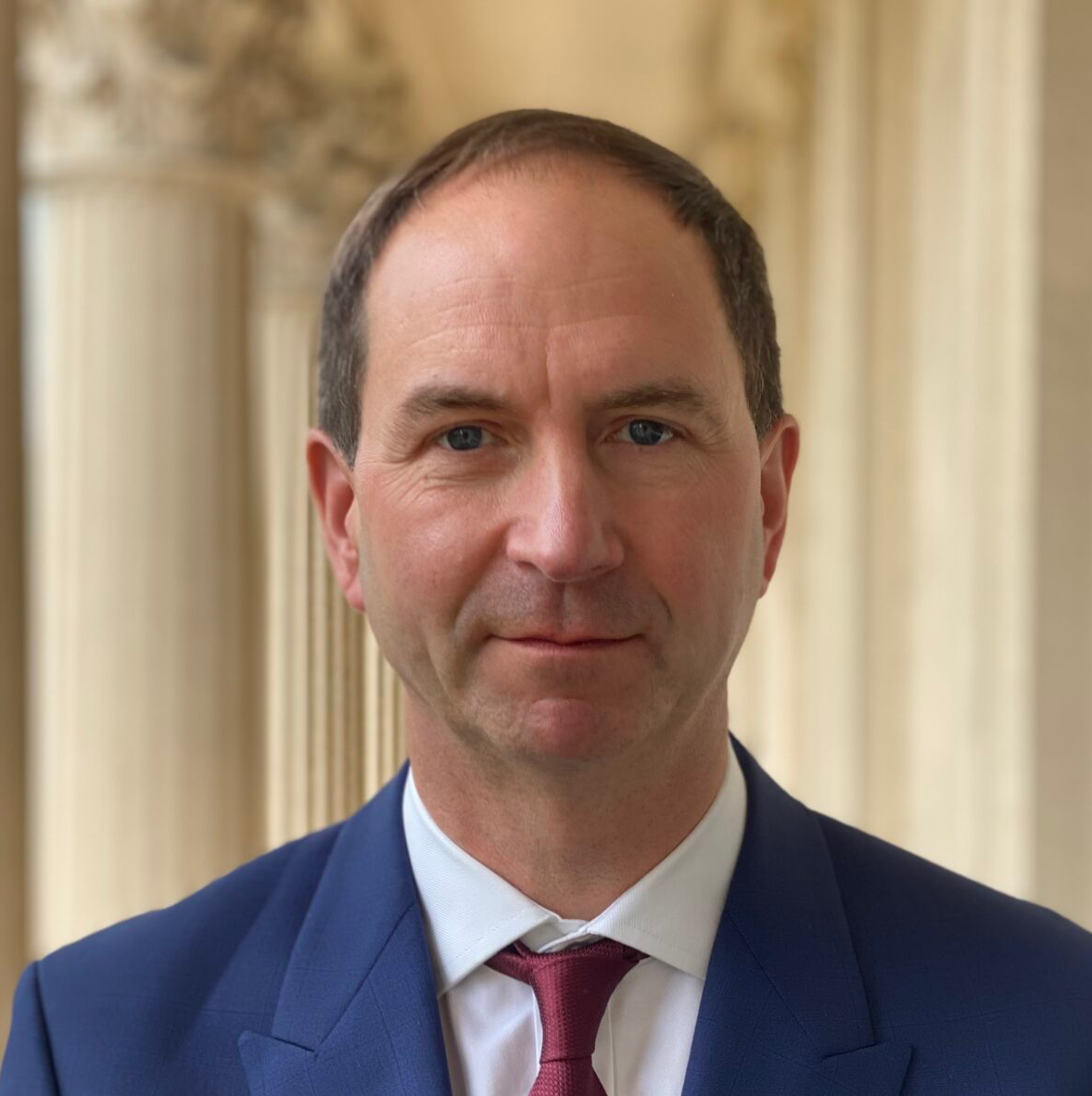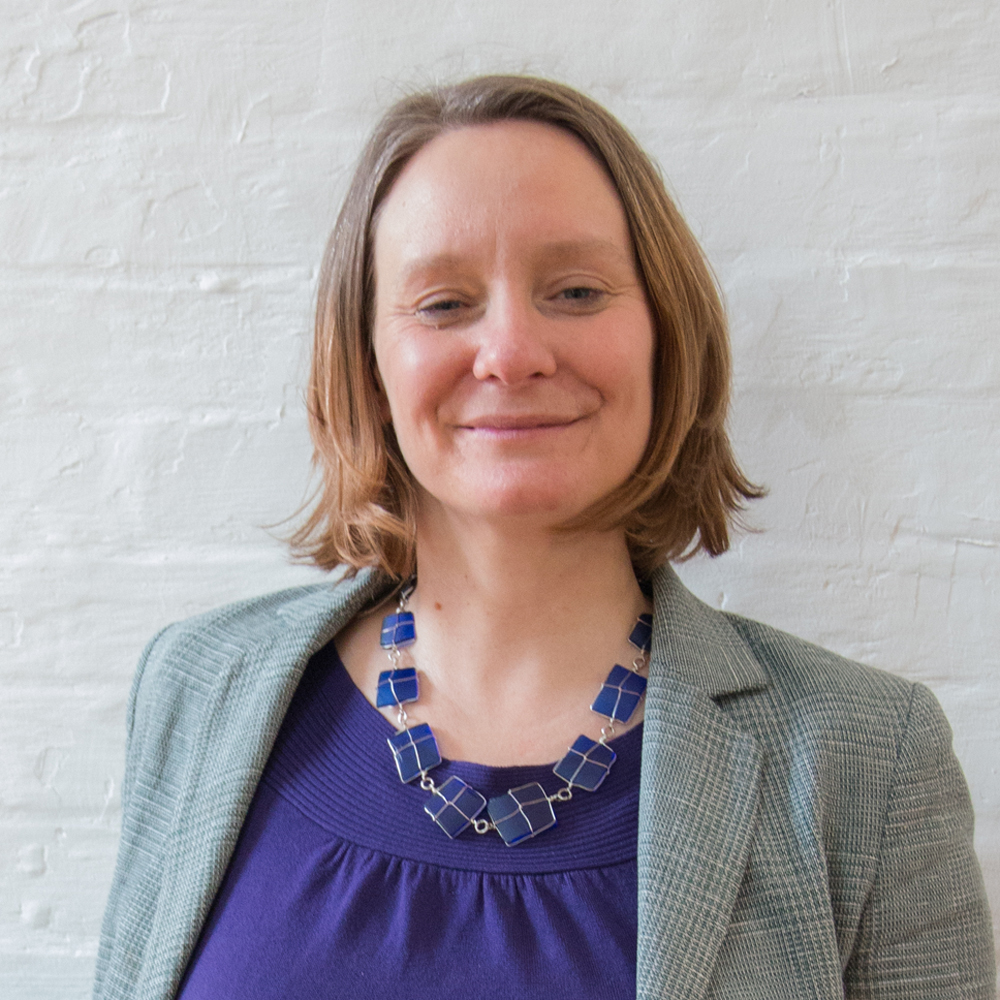Near the tipping point...


How industry must act NOW to help avert climate disaster
BUILD NET ZERO NOW Annual Conference
Tuesday 6th February 2024 | 13:00-18:00 | The Building Centre, London
“The record-shattering heatwaves, wildfires and floods destroying lives in the US, Europe, India, China and beyond in 2023 have raised an alarming question: have humanity’s relentless carbon emissions finally pushed the climate crisis into a new and accelerating phase of destruction?”
‘Off-the-charts records’: has humanity finally broken the climate? – The Guardian, August 2023
2023 was a record-breaking year for all the wrong reasons.

The summer of 2023 was Earth’s hottest since global records began. Leading climate scientists suggest the world had not yet passed a “tipping point” for climate change, but we are getting dangerously close.
The construction industry is playing its part to decarbonise, but is it going fast and far enough? Announcements made in December 2023 will not help our cause…
- The building fabric options proposed in the recently announced Future Homes and Buildings Standards consultation are even less ambitious than those consulted on previously. “Under the Future Homes Standard, we will be pushing building fabric standards further than ever before…”, MHCLG stated in 2021. This is clearly not the case.
- A Written Ministerial Statement (UIN HLWS120) announced that “the Government does not expect plan-makers to set local energy efficiency standards for buildings that go beyond current or planned buildings regulations”. What are the implications of this WMS for progressive councils across the UK who are in the process of updating and adopting new local plans to meet their climate emergency commitments?
Now, not later
Since launching in 2020, our Build Net Zero Now campaign has been calling for urgent action and the delivery of high-performing, net zero homes NOW.
Join us at Good Homes 2024 for our annual Build Net Zero Now conference for debates, expert insight, exhibition and networking as we discuss:
- Are the recently announced Future Homes Standard proposals really ‘fit for the future’?
- Will the proposals for developers to voluntarily carry out post occupancy performance testing really address the performance gap? (Identified by the Building for 2050 study* and previous GHA research as a major issue)
- What are the implications of the December 2023 WMS for progressive councils across the UK who are seeking to meet their climate emergency commitments?
- The key steps required to unlock investment and incentivise the delivery of net zero homes.
- How we must adapt and make our buildings more resilient to a changing climate, through appropriate shading design and specification, to mitigate overheating risk.
- The vital role for housebuilders in enhancing biodiversity in new housing developments.
- How to overcome ever-increasing water supply/demand issues and improve water quality.
- Leading edge thinking and aspirational policies are required to accelerate change and help tackle the climate crisis. Can we develop an ambitious ‘new manifesto for housing’ - championing net zero, healthy homes, community led housing, embodied carbon, building performance, the circular economy and more?
Speakers




















Programme
12:15 Registration, exhibition and networking
13:00 Welcome and introduction - What is the current landscape for net zero homes?

Lynne Sullivan OBE
Chair, Good Homes Alliance
Lynne Sullivan OBE is an award-winning architect and Chair of the Good Homes Alliance, and was awarded an OBE for services to architecture in 2011. A member of the Green Construction Board since its inception, Lynne is now a Visiting Professor and design consultant, and chairs policy reviews for UK governments and others.
13:15 Welcome from our Gold Sponsor - REHAU

Martin Hitchin
CEO, REHAU UK
13:20 Session 1: Build Net Zero Now
13:20 Panel discussion: Net zero planning policy and Future Homes Standards
Next steps following recent government announcements
Future Homes Standards – The building fabric options proposed in the recently announced Future Homes and Buildings Standards consultation are even less ambitious than those consulted on previously. “Under the Future Homes Standard, we will be pushing building fabric standards further than ever before…”, MHCLG stated in 2019. This is clearly not the case.
Are the Future Homes Standard proposals really ‘fit for the future’? And will the proposals for developers to voluntarily carry out post occupancy performance testing really address the performance gap?
Progressive planning policy – Local authority ‘Vanguards’ have adopted or are seeking to implement net zero planning policies and energy efficiency standards that go above and beyond national standards. A recently announced Written Ministerial Statement – ‘Planning – Local Energy Efficiency Standards Update’ (UIN HLWS120) made on 13/12/23 announced that “the Government does not expect plan-makers to set local energy efficiency standards for buildings that go beyond current or planned buildings regulations”. This supersedes a 2015 WMS which was preventing LAs from setting ambitious policies, as highlighted by Kevin McCloud in C4’s recent Great Climate Fight series.
What are the implications of this WMS for progressive LAs such as Cornwall Council, who adopted their Climate Emergency DPD in February 2023? And the many other councils across the UK who are in the midst of updating their local plans to meet their climate emergency commitments? Hear from Cornwall Council and experts who have been supporting councils in developing their progressive policies, as we discuss the way forward.

Marina Goodyear
Senior Technical Consultant, Bioregional
Marina Goodyear is Senior Technical Consultant for Bioregional and works on research, monitoring and writing to help their partners understand how to make their business, new development or city the most sustainable it can be.
Marina’s focus is on sustainable places work with developers and local authorities. With property developers, this involves sustainability action planning for major new urban developments in the UK and Ireland, using extensive contextual analysis for each project. With local authorities, Marina helps to develop better planning policy to create low-resource, low- and zero-carbon districts. This ranges from reviews of existing local plans with an eye on carbon, climate and biodiversity, through to producing evidence and guidance on which entirely new policy can be designed.
Alongside this, Marina has also been part of the team co-ordinating Bioregional’s One Planet Cities project since 2018; writing guidance documents, organising international peer-networking webinars, gathering ecological footprint data for Oxfordshire and identifying indicators to track change, as well as helping design research to understand local authorities’ support needs.
Marina is also involved in some of Bioregional’s sustainable business work, including research into sustainable products and materials (and monitoring sales of these) for our retail client Kingfisher.
In 2016 Marina gained a distinction in MSc Environment & Sustainable Development at UCL. Her thesis explored the role of urban agriculture in making cities more resource-efficient and more socially just. UCL then invited Marina to help put together a £7m research proposal on urban inequalities which was successfully funded by the GCRF.

Emily Rubin
Principal Development Officer, Cornwall Council
Emily Rubin is a Principal Development Officer with over a decade’s experience in Cornwall Council’s Planning Policy Team where she has worked on a wide range of projects. Most recently she has been focussing on the adoption and implementation of a new policy on sustainable energy in buildings.

Celia Davis
Projects and Policy Manager, Town & Country Planning Association
Celia Davis joined the TCPA in September 2022. She is responsible for managing the TCPA’s work on climate change including guidance, advice and training for local authorities and communities.
Celia previously worked in strategic planning at the West of England Combined Authority, where she worked on policy areas including placemaking and design, health, green infrastructure and climate change. She also led the delivery of the West of England Placemaking Charter and public engagement on strategic planning projects.
Prior to becoming a town planner Celia worked in community development, supporting people in Bristol to shape the future of their communities.
Celia has an MSc in Urban Planning from the University of the West of England and became a Chartered Town Planner (MRTPI) in Autumn 2022.

Thomas Lefevre
Etude
Thomas Lefevre is a sustainability engineer with over 20 years’ experience in low energy housing. He is currently working on ten Passivhaus and/or Net Zero Carbon housing projects. He has led research and policy work including the ‘Building Renovation Passport’ report for the Greater London Authority and the Retrofit London Housing Action Plan for London Councils.

George Martin
Chair, Building Performance Network

Julie Godefroy
Head of Net Zero Policy, CIBSE / Technical Steering Group member, UK Net Zero Carbon Buildings Standard
Julie Godefroy is a chartered engineer. She works as Head of Sustainability for CIBSE, where she leads the work on climate action including the Net Zero Carbon Buildings Standard, policy work, and collaboration with other institutions for joint climate action. She also works as independent sustainability consultant, with current projects including building performance evaluation, and overheating in existing homes and retrofits.
14:00 Panel discussion: Net Zero Housing and Finance

Neil Murphy (Chair)
Director, TOWN/Board member, GHA

Rafe Bertram
Built Environment Sustainability Lead, Enfield Council

Rachael Hunnisett
Green Mortgage Campaign Lead, Green Finance Institute
Having started out her career as a mortgage advisor before working for a mortgage lender within business development, national accounts and new build, Rachael Hunnisett has over a decade of experience working in the mortgage sector. Rachael’s work at the Green Finance Institute see’s Rachael combining her passion for sustainability with her career. Rachael leads the Green Finance Institutes Green Mortgage Campaign as part of their Built Environment Programme with a core focus of creating a green mortgage market which is scalable and plays a significant role in improving the energy efficiency of UK housing stock.

Tom Hill
Director, Impact Management, Savills Earth
Tom Hill joined Savills in May 2020 and heads up their work on impact economics, part of our wider impact analysis team.
Tom specialises in helping clients to map-out, quantify and value the environmental, social and economic impacts of their projects and operations.
Prior to joining Savills, Tom worked in a Westminster-based think tank.

Stephanie Landymore
Sustainability Lead, Ecology Building Society

Philip Graham
UKRI Design Innovation Scholar at Cambridge University (Homerton College) & architect at Cullinan Studio
Philip is a postdoctoral ‘UKRI Design Innovation Scholar’ at the University of Cambridge, an architect at Cullinan Studio (London), Director of Studies and Bye-fellow at Homerton College (Cambridge), and visiting teacher of sustainable housing design at Tampere University (Finland). He is funded by the Arts and Humanities Research Council (AHRC) to advance his cross-disciplinary proposition of Adjustable Housing and to tackle the architectural, institutional, cultural and financial challenges that this presents.
14:40 Refreshment break, exhibition and networking
15:10 Session 2: Adaptation and regeneration
15:10 Shading for housing: Designing for a changing climate
How we must adapt and make our buildings more resilient to a changing climate, through appropriate shading design and specification, to mitigate overheating risk.

Tom Dollard
Partner - Sustainability and Innovation, Pollard Thomas Edwards
As partner of sustainability and innovation, Tom Dollard leads PTE’s ever-evolving zero carbon culture providing project teams with training, support and inspiration. He is focused on practical, implementable solutions that ensure a building’s in-use energy performance matches the design intent.
Tom is a director of the Good Homes Alliance, a member of the CIBSE homes for the future group and has been part of various publications and research projects for Government and industry to help increase supply of low carbon homes. He is a certified Passivhaus Designer, BREEAM Accredited Professional.
His work for the Zero Carbon Hub and Building for 2050 has helped address the performance gap in the delivery of energy efficient homes. A second printing of Tom’s best-selling 2018 book for RIBA, “Designed to Perform: An illustrated guide to delivering energy efficient homes” will be published in 2022.
15:25 Enhancing biodiversity in housing developments
The vital role for housebuilders in enhancing biodiversity in new housing developments.

Sue Young
Head of Land Use Planning, The Wildlife Trusts
Sue Young leads on Land Use Planning for The Wildlife Trusts. She works to influence national planning policy and legislation, helping to put nature at the heart of spatial land use planning.
Sue provides a strategic lead on the planning work of The Wildlife Trusts movement, supporting 46 Wildlife Trusts to work with business and local government to protect and restore nature through the planning system. This also includes improving access to nature so everyone can enjoy and benefit from natural greenspaces where they live.
She has a scientific background and researched urban ecology before joining the Wildlife Trusts almost 20 years ago. One of her first roles involved integrating nature into the Thames Gateway regeneration before leading nature conservation and policy work at Kent Wildlife Trust. She joined the central team at The Wildlife Trusts five years ago.
15:40 Enabling Water Smart Communities
Identifying and addressing the barriers to delivering integrated water management within new housing development

George Warren
Integrated Water Manager, Anglian Water
With an engineering background and experience in consultancy, local government and a water utility, George Warren believes that partnership working is the only way to address the challenges facing us all in managing water more sustainably within the UK.
Within his current role, George is bringing together water resources, wastewater and environmental planning to identify more holistic water management opportunities across the region. He leads on the delivery of the Ofwat Innovation funded Enabling Water Smart Communities project, which identifies and addresses the barriers to delivering integrated water management within new housing development.
Prior to joining Anglian Water in 2021, George led on surface water management at the Greater London Authority where he focussed on policy writing and the promotion of retrofitting SuDS across London, for which he was recognised with the 2020 UK Susdrain SuDS Champion award.
He has been involved in several award-winning retrofit projects ranging from more conceptual pieces to large regeneration projects with a particular focus on retrofitting of SuDS within highways. He is the past chair of the London Drainage Engineers Group (LoDEG) and the Association of SuDS Authorities (ASA) Reference Group.
15:55 Q&A
16:15 Refreshment break, exhibition and networking
16:40 Session 3: Collective action and leading edge thinking to accelerate change
Facilitated pitch session and debate to develop ‘A new manifesto for housing’
Leading edge thinking and aspirational policies are required to accelerate change and avert climate disaster. Can we develop an outline of an ambitious ‘new manifesto for housing’ - championing net zero, healthy homes, community led housing, embodied carbon, building performance, the circular economy and more.

- Net zero
- Healthy homes
- Community-led housing
- Embodied carbon
- Building performance
- Material reuse and the circular economy

Facilitated by
Jon Bootland
Director, Sustainable Development Foundation / Chief Executive, Passivhaus Trust
Jon Bootland is Chief Executive of the Passivhaus Trust, which is the official body for promoting and protecting the Passivhaus standard in the UK. He is also Director of the Sustainable Development Foundation (SD Foundation), and has helped to establish the Good Homes Alliance (GHA), the SHINE network for sustainable healthcare buildings, the Sustainable Traditional Buildings Alliance (STBA) and the Alliance for Sustainable Building Products (ASBP).
Jon has over 20 years experience in sustainability for the built environment, including previous roles at The Prince’s Foundation and CIRIA (the Construction Industry Research and Information Association).

Net zero
Julie Godefroy
Head of Net Zero Policy, CIBSE / Technical Steering Group member, UK Net Zero Carbon Buildings Standard
Julie Godefroy is a chartered engineer. She works as Head of Sustainability for CIBSE, where she leads the work on climate action including the Net Zero Carbon Buildings Standard, policy work, and collaboration with other institutions for joint climate action. She also works as independent sustainability consultant, with current projects including building performance evaluation, and overheating in existing homes and retrofits.

Healthy Homes
Dr Hugh Ellis
Director of Policy, TCPA
Hugh Ellis is the TCPA’s Policy Director, so he is responsible for leading on policy development, briefings and engagement at the national level as well as regularly delivering workshops to local authorities. In 2018 he led the secretariat for the Raynsford Review, setting out a blueprint for a new planning system in England, and he has co-authored three books. Prior to joining the TCPA in 2009, Hugh was the National Planning Advisor to Friends of the Earth, before which he spent a number of years working for the Coalfield Planning Cooperative on community planning projects.

Community-led housing
Tom Chance
Chief Executive, Community Land Trust Network
Tom Chance heads up the Community Land Trust Network and leads on its strategy and its work to mainstream the community ownership of land and affordable housing. This includes public policy and advocacy work, and building relationships with industry bodies for housing associations, developers, landowners, local authorities and community networks.
Prior to joining the Network, he worked for the Greater London Authority in housing and planning policy, and as head of office for the Green Party Group on the London Assembly. He has also worked for a sustainable construction company, and as a consultant for clients such as the All Party Parliamentary Group for Housing and Planning, World Habitat and various local authorities.

Embodied carbon
Seb Laan Lomas
Associate and Passivhaus Designer, Architype/Coordinator, Architects Climate Action Network (ACAN)
Seb Laan Lomas joined Architype in 2021 and is an expert in sustainable design and policy, contributing to industry initiatives to decarbonise construction.
Seb is involved in various practice research initiatives on post occupancy evaluation, embodied carbon, policy and structural timber, and is a member of Architype’s climate action team. He has also worked with the City of Edinburgh Council on their EnerPHit-informed retrofit plan to decarbonize their portfolio of existing buildings.
Seb’s focus on environmental design began at the University of Cambridge, researching UK retrofit solutions. This led to a formative period studying at the Centre for Alternative Technology, followed by a post graduate degree at the University of Westminster, where he qualified as an architect. Seb is also a Certified Passivhaus Designer.
Seb is extensively involved in industry-wide networks and has been a coordinator for the Architects Climate Action Network (ACAN) since 2019, co-authoring a report on decarbonising construction, developing the network’s strategic direction, and coordinating multiple national campaigns around legislation.

Building performance in-use
George Martin
Chair, Building Performance Network

Circular economy
Katherine Adams
Technical Director, The Alliance for Sustainable Building Products (ASBP)
Katherine Adams has over 20 years’ experience in sustainability and materials, mostly in the construction sector. She has recently completed a PhD at Loughborough University, looking at how a circular economy can be embedded in the building sector. She is the Technical Director and provides her expertise to the development and implementation of projects, working groups and to members. Recent and current activities with the ASBP include working on the Plastics in Construction Group, Innovate UK Projects on Steel Reuse (DISRUPT and ARMOUR), the Ecosurety funded ZAP project on plastic packaging waste in construction. She was also joint author on embodied carbon guidance for social housing organisations for Woodknowledge Wales.
Katherine, in her own capacity, works with Defra and the Green Construction Board Resources, Waste and Circular Economy Group by developing an interpretation of ‘zero avoidable waste’ in the construction sector and a roadmap on how to get there. She undertakes consultancy projects for a number of organisations in the building sector to assist in their journey towards a circular economy. Much of Katherine’s experience was gained at BRE, where she managed the resource efficiency work area, including many projects for public and private clients, in the UK and abroad, for the provision of advice, consultancy and research in relation to the waste hierarchy. She has also been responsible for the software platform, SmartWaste, which enables the collection and analysis of environmental data on construction sites. She was also seconded to Government, to assist in the development of waste management policy and regulation.
Katherine throughout her career, has been instrumental in raising the importance of construction resource efficiency within the UK through the development of research and the provision of data and has developed influential partnerships and networks and encouraged collaboration across the supply chain. She has also started to work at a local level and leads the Circular Economy Club for Milton Keynes, working in partnership with Clubs in Bedford and Northampton.
17:50 Closing comments from the Chair
18:00 Close, followed by drinks, networking and exhibition until 19:30
Exhibitors
To enquire about sponsoring or exhibiting at the GHA 2025 Conference, contact:
Richard Broad, Projects & Communications Manager – richard@goodhomes.org.uk.






